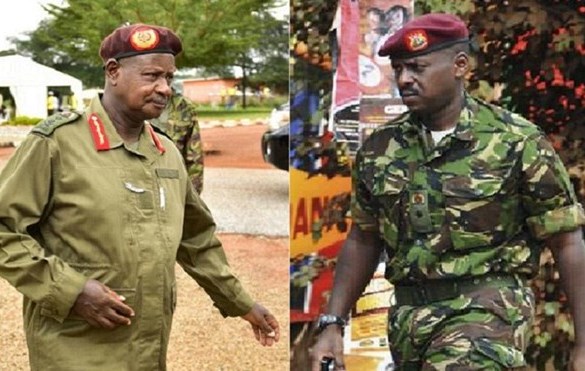News
BIG ANNOUNCEMENT!! If You Wear The Following Items, You Risk Going Straight To Court Martial

President Yoweri Kaguta Museveni has officially signed a new law that restricts civilians from wearing or owning items linked to the military. The Uganda Peoples’ Defence Forces (Amendment) Act, 2025, gives the army more authority to decide what clothing and accessories are meant strictly for military use. The law introduces Section 117A, along with a new “Schedule B,” which lists specific items that civilians are no longer allowed to have.

The banned items include ceremonial and ranger boots, military belts with national symbols, lanyards, forage caps, camouflage baseball caps in woodland and desert colours, and army helmets. Berets in green, black, and sky blue, ceremonial swords, and army green gum boots are also included. To make enforcement easier, the law provides pictures of these items so that security agencies can clearly identify what is illegal.
Government officials say this law is intended to stop people from impersonating soldiers and misusing military gear, especially during public protests or political events. The Uganda Peoples’ Defence Forces (UPDF) has often raised concerns about civilians dressing in military-style outfits, which they say can confuse the public and threaten security.
But not everyone agrees with the move. The law has stirred criticism, especially because it comes just ahead of Uganda’s 2026 general elections. Opposition leaders, especially from the National Unity Platform (NUP) led by Robert Kyagulanyi Ssentamu (popularly known as Bobi Wine), fear that it could be used to target their supporters. The red beret, a well-known symbol of NUP, was already banned in 2019. Now, with more items added to the restricted list, critics say this law gives the government even more power to crack down on opposition groups.
Legal experts and human rights organizations have also expressed concern. They warn that the law might be used to arrest people based on what they wear, rather than what they do. Some fear it could limit freedom of expression and increase tensions in politically active areas. They argue that while protecting the army’s image is important, it should not come at the cost of citizens’ rights.
Now that the law is in effect, security forces have the green light to arrest anyone found with items listed in Schedule B. Such individuals could be taken to the General Court Martial—a military court typically used for trying soldiers. As Uganda heads into a tense election season, many are watching to see whether this new law will be used fairly—or become a tool to silence government critics.




















